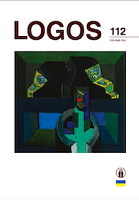Martinas Heideggeris: Aristotelio teorijos ikisąvokinė ištaka
Martin Heidegger: the Preconceptual Origin of the Theory of Aristotle
Author(s): Nerijus StasiulisSubject(s): Metaphysics, Ancient Philosphy, Contemporary Philosophy, Phenomenology, Hermeneutics, Ontology
Published by: Visuomeninė organizacija »LOGOS«
Keywords: Aristotle; ecstatic time; phenomenology-hermeneutics; Heidegger; ousia;
Summary/Abstract: This is the second part of a three-part text that looks at how Heidegger, in the earlier period of his thought (i.e. roughly prior to Being and Time), formulated an access to the pre-conceptual origin of theory, and how this enabled an access to and a rethinking of the Greek – and thus of the whole of Western – origin of philosophy/theory. This part of the text deals with the pre-conceptual origin of Aristotle's philosophical concepts, which is revealed by reading Aristotle through the method of Heidegger's phenomenology, or phenomenological hermeneutics. It is at this pre-conceptual level that the fundamental structure of Aristotle's philosophy and, at the same time, of Greek thinking, on the one hand, and Western thinking, on the other, appears, and, in a broad brush stroke, its two possibilities are revealed: the one which ignores the ecstatic time or the one which is the ecstatic time.
Journal: LOGOS - A Journal of Religion, Philosophy, Comparative Cultural Studies and Art
- Issue Year: 2022
- Issue No: 112
- Page Range: 29-35
- Page Count: 7
- Language: Lithuanian

